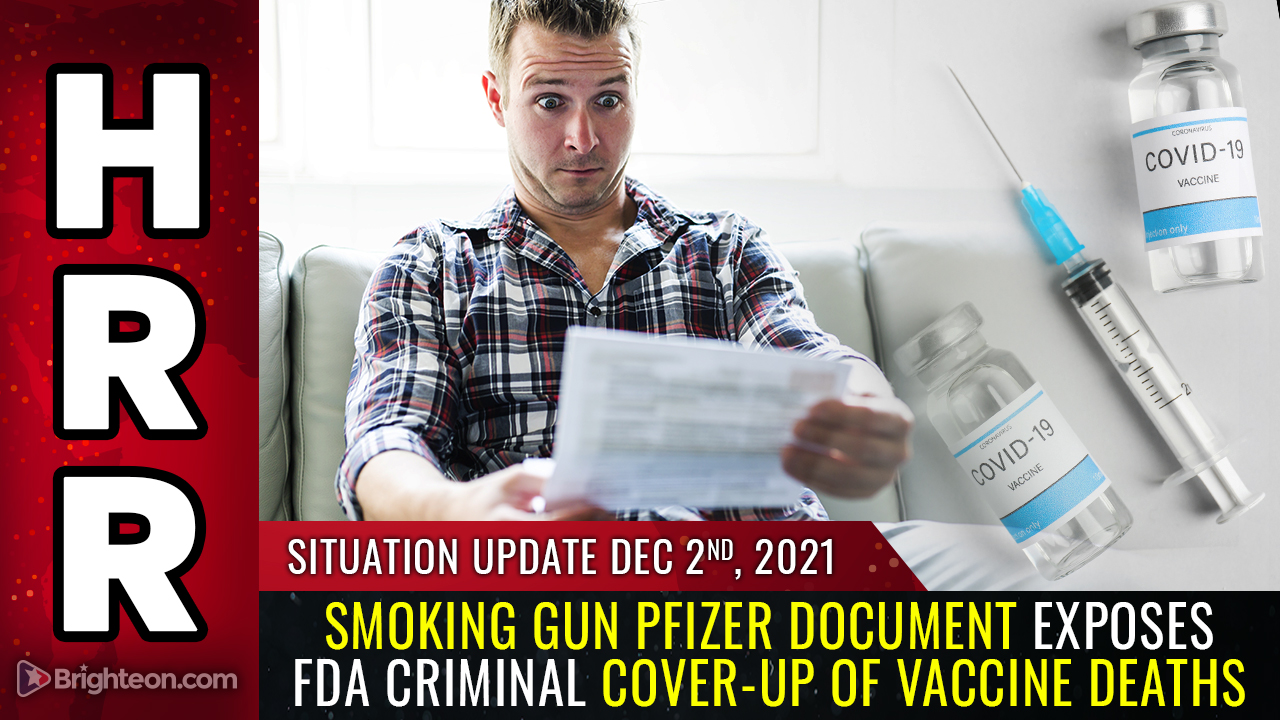FDA to add warning label to J&J covid injection about “serious but rare” autoimmune disorder
07/15/2021 / By Ethan Huff

The Wuhan coronavirus (Covid-19) “vaccine” from Johnson & Johnson (J&J) is about to get a new warning label from the U.S. Food and Drug Administration (FDA), which says the jab can cause Guillain–Barré syndrome (GBS).
On top of the other deadly side effects it can cause, J&J’s injection for the Chinese Virus has officially been linked to what the FDA says is a “serious but rare” autoimmune disease that can cause a jabbed person’s immune system to attack itself.
Roughly 400 cases of post-injection GBS have been reported in conjunction with Chinese Virus injection, according to the U.S. Centers for Disease Control and Prevention (CDC). Most of these cases occurred within two weeks after injection, and the majority demographic is men 50 years of age and older.
According to The Washington Post, “four individuals familiar with the situation” say that the CDC’s Advisory Committee on Immunization Practices (ACIP) is expected to discuss the issue at an upcoming meeting.
“GBS is a rare neurological disorder in which the body’s immune system mistakenly attacks part of its peripheral nervous system – the network of nerves located outside of the brain and spinal cord – and can range from a very mild case with brief weakness to paralysis, leaving the person unable to breathe independently,” explains Megan Redshaw, J.D., from LifeSiteNews.
Want to suffer? Go ahead and get a covid vaccine
While the official story is that nobody truly knows what causes GBS, there is a clear connection between vaccines and its sudden and rapid emergence. In other words, GBS appears to be a serious and rather common vaccine side effect, even if the establishment refuses to admit it.
The FDA still insists that Fauci Flu shots are safe and worth the risk, and that the likelihood of a recipient developing GBS is minimal. The numbers, however, tell a much different story.
According to the most recent data from VAERS (Vaccine Adverse Event Reporting System), some 398 cases of GBS have been reported in conjunction with Wuhan Flu shots since Dec. 14, 2020. Only 76 cases are linked to J&J’s jab, while 187 are attributed to Pfizer and 159 to Moderna.
“It’s not surprising to find these types of adverse events associated with vaccination,” claims Dr. Luciana Borio, a former acting chief scientist at the FDA.
Based on the data the FDA has allegedly collected thus far, Borio has declared that the benefits of injection for the Fauci Flu “continue to vastly outweigh their risks.”
The CDC further claims that the risk of GBS is “rare,” and that there is “a small possible risk of this side effect following” injection with the J&J jab.
One 57-year-old man from Delaware reportedly died back in early April after he developed GBS post-injection. The man had previously suffered both a stroke and a heart attack.
A third-grade teacher also developed GBS roughly three weeks after getting her jab. “Stacie,” as the media is calling her, had to be rushed to the emergency room multiple times after getting the shot because she was experiencing severe numbness in her lower extremities.
Stacie eventually lost her ability to both stand and walk, and was later hospitalized and diagnosed with GBS.
Gary Spaulding, another J&J vaccine recipient, developed a severe headache immediately after getting injected. Spaulding was diagnosed with Lyme Disease, only to develop severe numbness and tingling that worsened over time, resulting in a switch from a Lyme diagnosis to a GBS diagnosis.
The J&J jab is also linked to deadly blood clots and a mysterious skin peeling disorder, both of which emerge not long after injection.
More of the latest news about the serious risks involved with taking a Fauci Flu shot can be found at ChemicalViolence.com.
Sources for this article include:
Tagged Under: adverse events, autoimmune disease, Big Pharma, coronavirus, COVID, FDA, Guillain-Barre, Johnson & Johnson, Plandemic, vaccination, vaccine injury, vaccines
RECENT NEWS & ARTICLES
COPYRIGHT © 2017 FDA NEWS
















